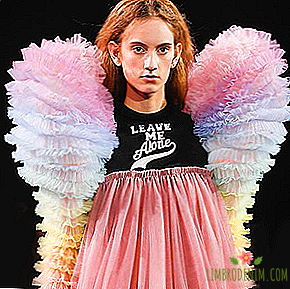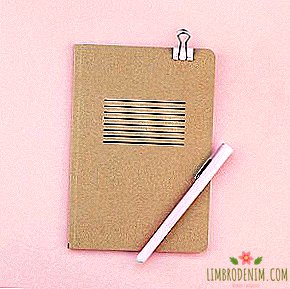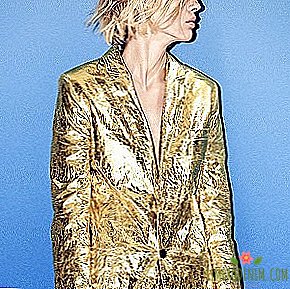Artist Marina Vinnik about favorite books
IN BACKGROUND "BOOK SHELF" we ask journalists, writers, scholars, curators, and anyone else not about their literary preferences and publications, which occupy an important place in their bookcase. Today our guest is Marina Vinnik - a modern artist, director and co-organizer of the school of feminist artists "Kitchen".

It seems to me that in many ways my reading habit was formed as a way to escape from some unwanted external events and conflicts. And as a way to escape from real (but inadequate) people, of course. My very favorite habit in childhood was to climb high on a tree and sit there. Everything was perfectly visible, beautiful, and no one could reach me, and even it was impossible to shout to me. I couldn’t manage to sit on a tree all day, I got bored. At some point I thought of taking a book with me and then I discovered that I can sit on a tree for almost a whole day. Until now, the perfect way for me to spend time is to climb somewhere high with an interesting book. In the plane, for example.
My relationship with books and movies is somehow related to my relationship with the narrative in principle. At first I was very interested in books with the plot. It seemed to me that the only way to describe the surrounding reality and talk about the world, just breaking it into stories. I followed the development of events and could not go to eat or sleep, to finally finish reading to a turning point, to understand how the story will end. And over time, it became boring for me to read books with stories, because I understood how these very stories are built. Then I decided that I would read books where there are new thoughts and a new life philosophy, or at least an analysis of old ones. I turned to confessional and autobiographical literature. And later she began to read absolutely not plot books, but rather popular-science and philosophical books on a single topic or collections of articles.
I had very good friends in my teens. They were older, more advanced and always prompted me to music, books and movies. Of course, then I thought that I needed to immediately read, listen and see everything - because otherwise it was impossible to keep the conversation going. And my reading speed was rather big, 70-80 pages per hour. So I read all the cult books from Hesse to Kerouac and back with tremendous speed and diagonals. Now I don’t remember almost anything I read in those years. The turning book in transitional age for me is, probably, Salinger's "The Catcher in the Rye". I still remember quotes from there. Especially about the variability of human nature and the gasoline spot. And always, when I look at the gasoline spot, I remember this book and Holden Caulfield. My friend and I were literally in love with him and tried to find someone like him in real life. But no one had such charisma and no one had gray hair. We were terribly disappointed and despised real boys, sincerely loving the literary character.

The most valuable thing for me in literature is sincerity and truthful approach to the material.

In fact, I consider all Russian authors to be lauded. Because we have such massive propaganda going on at school and then, that it is very difficult to see the real value. This is the endless "Pushkin - our everything" and "Tolstoy - the genius of Russian literature", it is difficult to overestimate the scale ... Because of this, for example, it was always impossible for me to develop my personal intimate attitude towards these writers. They are too iconic, no longer literature, but just a monument. But so, unfortunately, in every country happens to native writers, they become part of propaganda. I consider my teenage rebellion against this to be absolutely natural, and only now I am beginning to gradually return to them and reread. "Idiot" reread, "Anna Karenina" - from the point of view of gender theory, the darkness is complete. It is a pity, I do not know people who would be engaged in the study and deconstruction of Russian literature from this angle. I would love to learn more about the literature of those countries that are not involved in complex political and propaganda affairs - Spain, Lithuania, Iceland. I am interested in small forms and not blockbusters at all.
I have a rather complicated relationship with Doris Lessing and her book The Golden Diary. Once I went on a summer vacation trip and took this book with me. I went on vacation almost exemplary, only imperceptibly suffering wife and mother, and from vacation I returned with a strong desire to change my life and stop being a model of integrity. As if I talked with a book and she convinced me to get a divorce. Then I returned to this work more than once, but never again did I have a feeling of this direct influence on my life. And recently I learned about the Baader effect - Meinhof, so, probably, it was him.
I often go back to Cunningham’s book The House at the End of the World. The first time I read it at the age of eighteen, because my close friend met the translator of this book and brought it to me as a valuable thing to which she was involved. Then I quickly read it and absolutely did not appreciate it. She returned to her after eight years and found that it was just a brilliant book. It is written in such a language and tells about such events that you want to live in it. I could be the hero of such a book. Since then, I regularly re-read it. By the way, there is a film of the same name - also very good.
Feminist activism began with real events and people, and not with literature. At first, modern art attracted me to huge exhibitions, and only then I decided to read something about it. So the adjacent areas influence me, and I read books on the subject a bit later in order to reflect the situation. I try to read books and articles on feminist art criticism and cinema articles. Reviews of festivals, exhibitions and new products I care a little. But all the articles and collections that investigate a particular phenomenon or idea are very interesting to me. Any social, institutional criticism that appears in the press is also very fascinating.
I try to read when I drink coffee in the morning, read on the subway, read before bed and, of course, read on trips. Sometimes, in the morning, instead of reading, I check my mail or flipping through Facebook, but I like this activity much less and it does not allow me to concentrate and start a new day, feeling smart and focused.

"Gender Check: A Reader. Art and Theory in Eastern Europe"
This book inspires me. With her, I always feel embedded in some larger context than just Moscow or Russian art. When you read articles and research on your subject - it immediately becomes very warm and neodino. I would like to see more such books, and preferably in Russian. Unfortunately, such articles can be read mainly in English. Which once again confirms the wording: the artist who can't speak English - is no artist. This book came to me in Vienna, it was just presented to me by the publishers when they learned that I was working in a related field. It is rather heavy, but since then (for a year now) I have been carrying it with me. I would advise reading and finding "Feminist Art Theory" - this is a useful and detailed collection of articles with gender analysis of contemporary art, mainly its American component. And in Russian there is a collection of articles "Gender Theory and Art" edited by Lyudmila Bredikhina.

"Homo Ludens"
Johan Huizinga
This book was one of the first populistically written philosophical books that fell into my hands. Then I read mostly natural science textbooks and did not know how to look at society as a construction. I was scared interested in a new way to look at the behavior of people around. And it will be easy for everyone who reads this book. Now I think I should reread it. And she came to me from someone else's shelves. From time to time I take someone to read a book and do not return it. But with my books the same thing happens, so I keep the balance of the book exchange. A similar and important book for me is “To Supervise and Punish” Foucault.

"Dialogue with the screen"
Yuri Lotman, Yuri Tsivyan
Besides the fact that there is a big problem with books on gender theory in art in Russian, there is also a big problem with books on the phenomenon of cinema and on film theories in Russian. This book is a rare example of clear and detailed analysis. I read it even when I was preparing for admission to VGIK and attended courses. She was presented to me by a friend who sympathized with my ambitions. And now VGIK is over a long time ago, all the lectures on the theory of cinema and the practice of cinema have long been listened to, and this book is still the best that I have. And also "Cinema as a visual code" by Maria Kuvshinova, "Photogenia" by Louis Delluc, "Conversations about the cinema" by Mikhail Romm, "Cinema" by Virginia Woolf.

"Woman, Art and Society"
Whitney chadwick
This book details and consistently tells the story of all women artists who worked throughout the history of art. It speaks not only about the style of painting or ways to create the most outstanding work of art, but also about the social context. Binding together the conditions in which the work of women artists in different epochs took place, and their achievements, is terribly inspiring. I would like more books to appear that can tell the history of art as a social phenomenon, without separating it from the political situation and power relations. Then many things fall into place, and you can easily start talking about the modern context. Unfortunately, people very often tend to frame something, to iconize and no longer perceive it as a living and controversial thing.

"The Golden Notebook"
Doris lessing
The most valuable thing for me in literature is the sincerity and truthful approach to the material, even if it is, in fact, about the life of the writer. In the incredibly intelligent and ideological Doris Lessing, this sincerity is exactly at the required level. On the one hand, she is able to look distantly at her life from the perspective of a feminist who sees and knows everything about the oppression of women and their learned helplessness. On the other hand, she talks about all her metamorphoses, states and throwings in everyday, everyday mode - without posing or embellishing. It was this book that I bought from a second-hand bookseller in the city of Nikolaev, and my Russian edition was presented by friends to my ex-husband for his birthday, but somehow he was not particularly interested in it. I immediately liked it, and I read it during one of the summer holidays. It was then that I decided that I wanted to get a divorce. When we discussed our relationship, I said that I understood how much I need a divorce, thanks to this book. Then my ex-husband read it all the same, though I did not understand what I had dug out there. Similar books are “Mrs. Dalloway” by Virginia Woolf and “If You Ask Where I Am” by Raymond Carver.

"Flesh and blood"
Michael Cunningham
Michael Cunningham is one of the few authors I reread. Considering that he writes narrative prose with a plot and characters, this is amazing (at least for me). But Cunningham writes that he wants to stay forever in his text. In "Flesh and Blood," probably the largest number of heroes - more than in his other books. All of them are connected with each other and they are all contradictory. You can look at life from the perspective of each of them and find comfort and reconciliation with reality from any position. Such literature, which neatly keeps the focus of modern man and does not make him an American superhero or small and unhappy heroes in the style of Russian literature, is the closest and most comprehensible to me. I bought this book myself. I follow Cunningham and immediately buy his books as soon as they come out.

"Family Ties: Build Models"
Here you can find a good selection of articles on the topic of the family as a social phenomenon. It is especially interesting that all the articles are written in Russia and they all understand and reflect the Soviet experience. I, like any person who is engaged in deconstruction (in art and in life), it is always very interesting to examine in detail all constructions, including the family model. After all, when you think about it abstractly, nothing happens - all sorts of clichés creep in. But in this book a variety of issues are discussed in detail: from the architectural structure of the family bedroom to the social characteristics of the life of lesbian couples. I took this book to read in St. Petersburg from an employee of the TV channel, where I worked at that time. I’m really ashamed that I haven’t returned it yet. A similar book, which I advise you to read, is Nancy Chodorou's “Reproduction of Motherhood”.

"Kiss Spider Woman"
Manuel puig
This particular book means a lot to me. Somehow it unites in itself absolutely everything that I love: politics, cinema, human relationships, philosophy and psychoanalysis. When I start re-reading it (which I do about once a year), I feel like a little child who is told fairy tales. The action of the book takes place in prison, where one of the prisoners entertains the other by retelling old films to him. The film retellings were written so enticingly that I found all the originals and looked at them; I was especially impressed by the movie "Cat People" of 1942. There is also a film that is based, in fact, on this book. But I love the book so much that I still watch the movie, although it should be good. This book came to me by chance. At first, it was given to me by a friend to read, with the words: "You love about gays," and then I went to the store and bought it in my personal library and have been with me since then. If you compare this book with pills, you get something like a tranquilizer. She hypnotizes and calms me. And in my life there are often such moments when it would be good to just calm down and look at things not from the usual panic point of view, but from such a fabulously detached one.

"Orgasm,
or love joys in the West. The history of pleasure from the XVI century to the present day "
Robert Mueshamble
This book has been a hit in my reading life for the last couple of months. I accidentally pulled her off the shelf with friends and now I enjoy reading. In general, I desperately lack articles and books from the Sex & Philosophy section, and this French compilation perfectly understands the whole history of human passions and options for strategies in sexual life at different times and in different countries. Of course, I am most interested in gender attitudes and attitudes towards homosexuality. It is interesting to trace the connection between sex and power. But besides this, I discovered in the book a new reason for reflection - the opposition between bigotry and debauchery. How, on the one hand, porn can be at one time an emancipatory, liberating practice for people, but on the other hand, it can be extremely conservative and enslaving to another.

"Skippy is dying"
Paul murray
"Skippy dies" - a book about teenagers, written almost entirely on behalf of teenagers. In the center of the narration is a loser teacher and several students of a private school closed. Few who manage to write a book, concentrating on the life and experience of adolescents, the topic is not too clear and not too prestigious. Plus, we need to talk about teenage rebellion and hypersexuality, and in adults, such conversations are rarely interesting. Adolescence is so fragile and controversial, it turns out that it is very difficult to tell about it without lies and without simplification. It is difficult to do this not from the perspective of an adult, but from the inside. Movies also rarely do this, but there is an American independent film and Dinara Asanova. I think I read all the books that tell about the life of adolescents, among them there are Russian ones. If a writer manages to talk about adolescence, then I start to respect him terribly, even if the rest of his books are complete nonsense, in my opinion.






